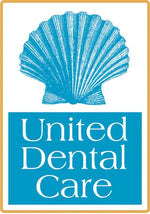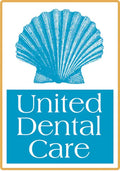
Tooth Extraction | United Dental Care | Culver City CA
Tooth extraction is the ultimate option for addressing an irreparably injured tooth. If extracting your tooth gives you dental anxiety, visit Culver City Dentist United Dental Care! Our trusted professionals guarantee a seamless and comfortable tooth extraction procedure. Protect your overall dental health from more significant harm.



Did you know that around 5 million people in the United States undergo wisdom tooth extraction yearly? That is roughly 13,000 wisdom teeth extracted every single day. How much more if we include the many extraction cases due to severe cavity infection and trauma? That would only magnify the clinical importance of tooth extraction procedures in keeping your oral and dental health upright.
Check out the following to know more.
What is tooth extraction, and why is it necessary?
Dental extraction or exodontia is a clinical procedure that removes a tooth entirely from its socket when no other restorative dental treatment can save the tooth. This procedure is done by pulling a tooth out of the gums, addressing problems and circumstances, such as:
- A completely decayed tooth due to severe cavity
- An irreparably damaged tooth due to external trauma
- An impacted tooth or a tooth that does not break through a gum
- A seriously overcrowded set of teeth that undergoes an orthodontic treatment
Simply neglecting a should-be-extracted tooth threatens one’s oral health. This case might cause halitosis (bad breath problems), gum disease, and oral cancer. Worse, this could also lead to a fatal blood infection (sepsis) that could seriously damage one’s vital organs over time.
In medical practice, all tooth extractions are done with local anesthesia to numb the surrounding area near the surgical site and relieve any pain and discomfort caused by the procedure.
Simple tooth extractions are done by a dentist, while a surgeon does a tooth that requires surgery.
Hear from our dentist


Image from: https://my.clevelandclinic.org/health/treatments/22120-tooth-extraction
Two main types of tooth extraction
There are two main types of tooth extraction: simple and surgical.
Simple extractions are the most common type of tooth removal. These are non-surgical extractions done by a general dentist with almost no complexity. Loosening the tooth requires an elevator in the gums before extracting it using forceps.
Surgical extraction, however, is a different process. Incisions are made in the gum before a tooth is completely pulled out. It is a standard procedure when removing an impacted tooth, usually the third molar. Hence, we have oral surgeons who specialize in this kind of treatment and are fit to do this procedure.
Depending on the tooth’s condition, our dentist shall first have a dental x-ray of your tooth to analyze its structures and secure the adjacent teeth. What happens next are preparations on how to extract the tooth properly and what type of extraction is needed.
Got Dental Insurance?
We've partnered with more than 70 insurance companies.
Check our list now for your treatment needs!










Wisdom tooth extraction
You may deal with an erupting wisdom tooth at one point in your life. Wisdom teeth, or third molars, are the last permanent adult teeth to appear or erupt in the mouth. They usually appear between the ages of 17 and 25, although not everyone may experience such an event.
When a wisdom tooth erupts, it can grow at an angle toward the next tooth or the second molar. Sometimes, it might appear at an angle toward the back of the mouth. It can also erupt straight up or down like other teeth trapped within the jawbone.
Third molars can cause pain, infection, gum disease, and tooth decay caused by trapped food debris.
We often recommend a wisdom tooth extraction when patients experience symptoms such as swollen jaw and gums, bad breath, and jaw pain.
A wisdom tooth may either require simple or surgical extraction. For example, simple tooth removal may be recommended when a wisdom tooth is visible. But if it is fully or partially impacted (not visible or fully erupted), our dentist may advise surgery or even bone grafting.
Bone grafting is the process of adding volume and density to the jaw, specifically in areas where there is bone loss. A bone graft may be taken from the patient’s body or purchased from a human or animal tissue bank. In some occasions, the bone graft can also be synthetic.
How much does tooth extraction cost in California?
The cost of a tooth extraction depends on which extraction procedure must be performed. Here’s a quick idea of how much a tooth extraction costs in California:
| Type of Extraction | Average Cost per Tooth |
| Simple or Non-Surgical | $75 - $300 |
| Surgical | $300 - $700 plus |
There is no better alternative to knowing how much it would cost you for your treatment than having a personal consultation with our dental experts. You may also check your dental insurance coverage with us, as we in Culver City Dentist United Dental Care offer flexible payment options to cater to your needs.
Frequently Asked Questions
Usually, oral surgeons would advise refraining from heavy physical activities for 48 to 72 hours after the tooth extraction to give more time for the wound to heal. However, the gum tissues are expected to recover and heal after 15 to 30 days. But it may still depend on which type of extraction you have had. Surgical extractions take longer time to heal than non-surgical ones.
Typically for non-surgical extraction, your dentist would not give you a long list of don’ts before the procedure. But for those who will undergo a surgical extraction, it is expected that you do not:
• Eat or drink 8 hours before the time of operation
• Stay late at night before the operation
• Smoke
There is no limit to how many teeth can be extracted at once. Although this could rarely happen, doing it is possible, especially if it is the only choice to address severely infected teeth. By far, extracting 2-4 teeth at once is common.
An impacted wisdom tooth is by far the hardest tooth to extract. As said, the higher the degree of impaction, the harder the extraction.
As part of the post-treatment care, you should refrain from the following:
• Alcohol/liquor intake as this slows down healing
• Hot drinks that may contribute to swelling
• Use of straw in drinking beverages as this may flood out the healing clot
• Smoking
For a tooth extraction to heal faster, we advise our patients to:
• Have a soft and healthy diet
• Brush the teeth gently while avoiding the area of extraction intact not to dislodge the blood clot
• Keep the extraction site always clean
Pain relievers are taken after tooth extraction. It is advisable to have your doctor’s prescribed medicine. In practice, however, Ibuprofen 400-600 mg is usually used and is taken every 6-8 hours.
Book your dental appointment with Culver City Dentist
While Culver City Dentist United Dental Care focuses on preventive care, we offer tooth extraction services daily, including emergency tooth extractions.
We join the advocacy of promoting a conservative approach to dental treatment while not discounting the overall health importance of extracting a potentially dangerous tooth.
Culver City Dentist United Dental Care focuses on preventive dental health care, as our experts provide our clients with the best oral health advice to avoid an extraction.
Save a date now. Book an appointment and get your best dental consultation in town.



